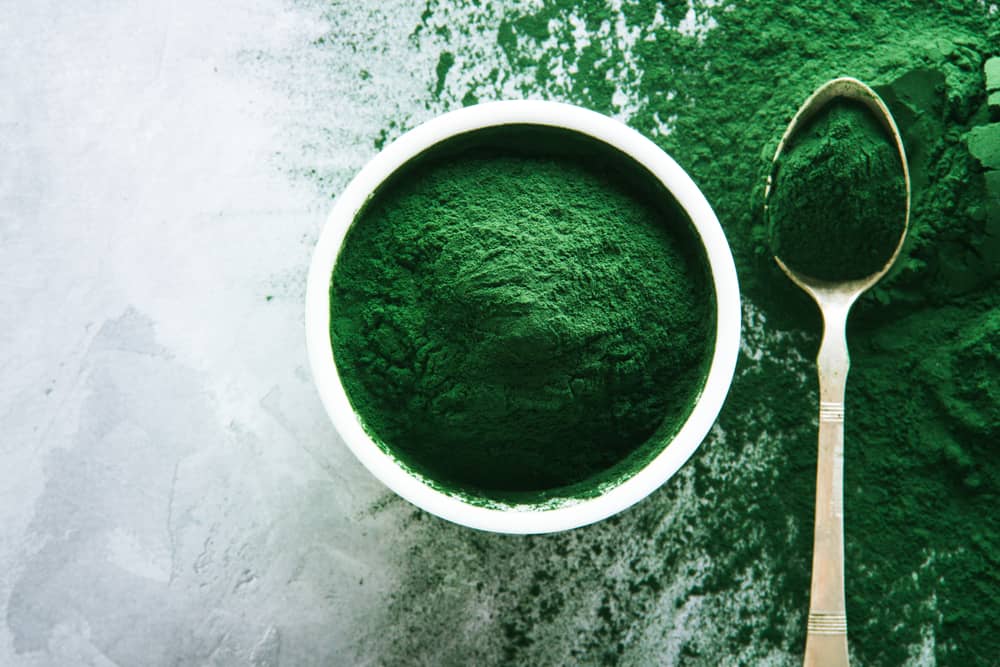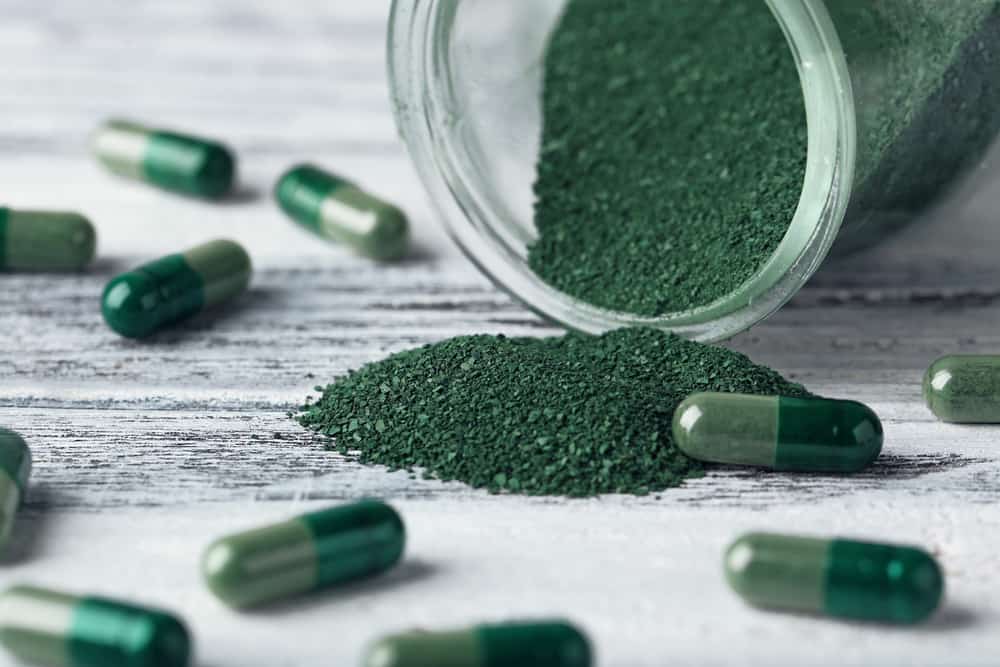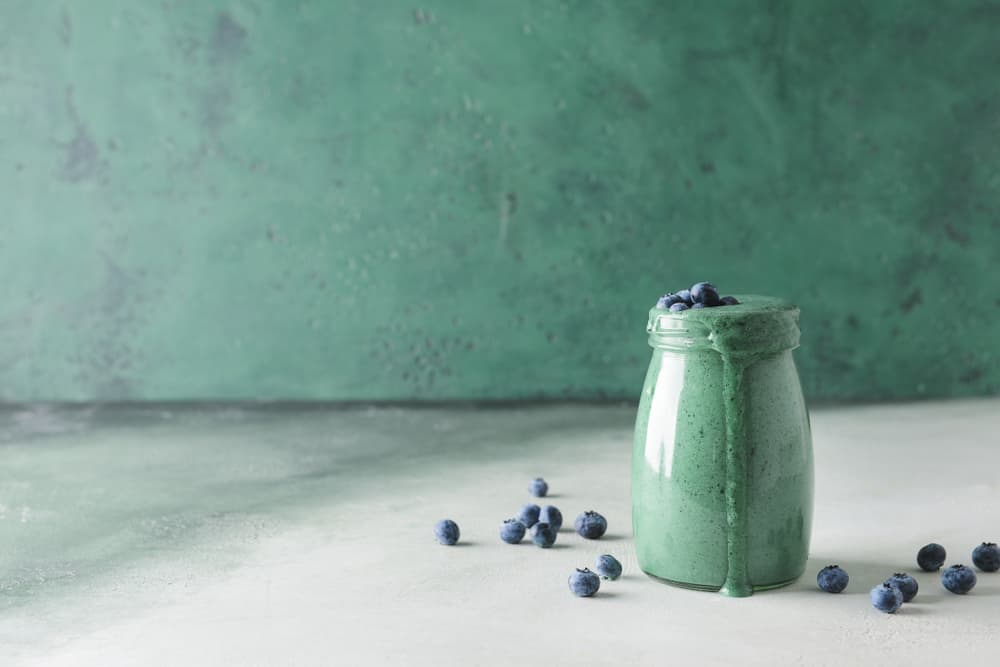
Spirulina powder is a superfood that comes from algae. It’s a great source of protein, vitamins, minerals, and antioxidants. And it has some fantastic health benefits, including boosting energy levels, fighting inflammation, and improving cognitive function.
Mixing spirulina powder with water or another liquid is the best way to take spirulina powder. Some people add spirulina powder to smoothies or juices. If you don’t like the taste of spirulina, you can also find it in pill form.
This guide will give you some valuable tips on getting the most out of this amazing superfood.
History of Spirulina

Spirulina has been around for centuries. It was first discovered in South America and Africa. The Aztecs used it as a food source, later used by the Chinese and Japanese as a medicinal herb.
Spirulina is a type of blue algae that grows in freshwater ponds and lakes. It’s often called a “superfood” because it’s an excellent source of protein, vitamins, minerals, and antioxidants.
How To Take Spirulina Powder

Mixing it with water or another liquid is the best way to take spirulina powder. Start with a small amount of powder and gradually increase the amount you take. Some people also add spirulina powder to smoothies or juices. If you don’t like the taste of spirulina, you can also find it in pill form.
The recommended dose of spirulina is 1-3 grams per day. But some people take up to 10 grams per day. If you’re new to spirulina, start with a lower dose and gradually increase it.
Spirulina has many potential health benefits, including boosting energy levels, fighting inflammation, and improving cognitive function. It’s also a good source of protein, vitamins, minerals, and antioxidants.
Spirulina is safe for most people, but there are a few side effects to be aware of. These include;
- Nausea
- Stomach pain
- Diarrhea
- Headache
- Dizziness
- Allergic reactions
If you have any medical conditions or are taking any medications, please speak to your doctor before taking spirulina.
Tips for Incorporating Spirulina Powder Into Your Daily Routine

Want to add spirulina powder to your daily routine? Here are the best ways how to do it.
Add it to your smoothie: A great way to add spirulina powder to your diet is by adding it to your smoothie. Add 1-2 tablespoons of spirulina powder to your favorite smoothie recipe.
Mix it with juice: Another easy way to take spirulina is by mixing it with juice. Add 1-2 tablespoons of the powder to a glass of juice and stir well.
Add it to yogurt: Add spirulina powder to yogurt. Add 1-2 tablespoons of the powder to a cup of yogurt, and stir well.
Make spirulina balls: If you’re looking for a snack high in protein and nutrients, try making spirulina balls. Simply mix 1 cup of spirulina powder with 1/4 cup of nut butter and 1/4 cup of honey. Roll the mixture into balls and store in the fridge.
Bake with it: You can also add spirulina powder to baked goods. Just add 1-2 tablespoons of the powder to your favorite recipes.
Add it to soup or salad: Spirulina powder can also be added to soup or salad. Just sprinkle a tablespoon or two on top of your favorite soup or salad recipe.
Health Benefits of Spirulina

Spirulina has a variety of benefits, including:
Boosts Energy Levels
Spirulina is an excellent source of protein and nutrients, which can help boost energy levels. A study in 60 people with chronic fatigue syndrome found that spirulina improved fatigue symptoms after 8 weeks. Another study gave spirulina to athletes for 4 weeks and found that it improved exercise performance and increased muscle strength. Spirulina may also help fight fatigue by reducing inflammation. Inflammation is a common cause of fatigue.
Fights Inflammation
Spirulina has powerful anti-inflammatory properties that can help reduce inflammation throughout the body. A study in rats found that spirulina reduced inflammation markers and prevented liver damage. Another study showed that spirulina reduced inflammation in people with rheumatoid arthritis.
Improves Cognitive Function
Spirulina may improve cognitive function and protect against age-related decline. A study in older adults found that spirulina improved memory and attention after 8 weeks. Another study showed that spirulina protected against age-related decline in memory and learning ability in rats. Spirulina may also improve cognitive function in people with Alzheimer’s disease.
Good for the Heart
Spirulina may protect against heart disease by reducing cholesterol and blood pressure levels. A study in rats found that spirulina reduced cholesterol and triglyceride levels. Another study gave spirulina to people with high cholesterol and found that it reduced LDL (bad) cholesterol levels by 10% and triglycerides by 16%. Spirulina may also help reduce blood pressure levels. A small study showed that spirulina reduced blood pressure in people with hypertension.
May Help Treat Cancer
Spirulina may have anti-cancer properties. A test-tube study found that spirulina inhibited the growth of cancer cells. Another test-tube study showed that spirulina induced cell death in leukemia cells. Animal and test-tube studies suggest that spirulina may help protect against various types of cancer, but human studies are needed.
Excellent Source of Protein
Spirulina is a fantastic plant-based protein source. About 60% of the total weight is made up of protein. A complete protein, spirulina, includes all the amino acids necessary for human growth and development. Spirulina is an excellent source of all nine of the body’s essential amino acids, making it a complete protein. A wide range of essential bodily functions relies on them, including muscle growth and repair, hormone synthesis, enzyme production, and many more.
Good Source of Vitamins and Minerals
Spirulina is a good source of vitamins and minerals, including vitamins A, B1, B2, B3, B6, B9, iron, magnesium, potassium, and manganese. It’s also a good source of antioxidants and phytonutrients.
Conclusion
Blue-green alga Spirulina offers numerous health benefits. As a bonus, it is loaded with protein and antioxidants. There is some evidence that spirulina can boost cognitive performance, protect against heart disease, and treat cancer.
There are many ways to incorporate spirulina powder into your diet. You may use it to make smoothies, drinks, yogurt, baked goods, soup, and salad.









